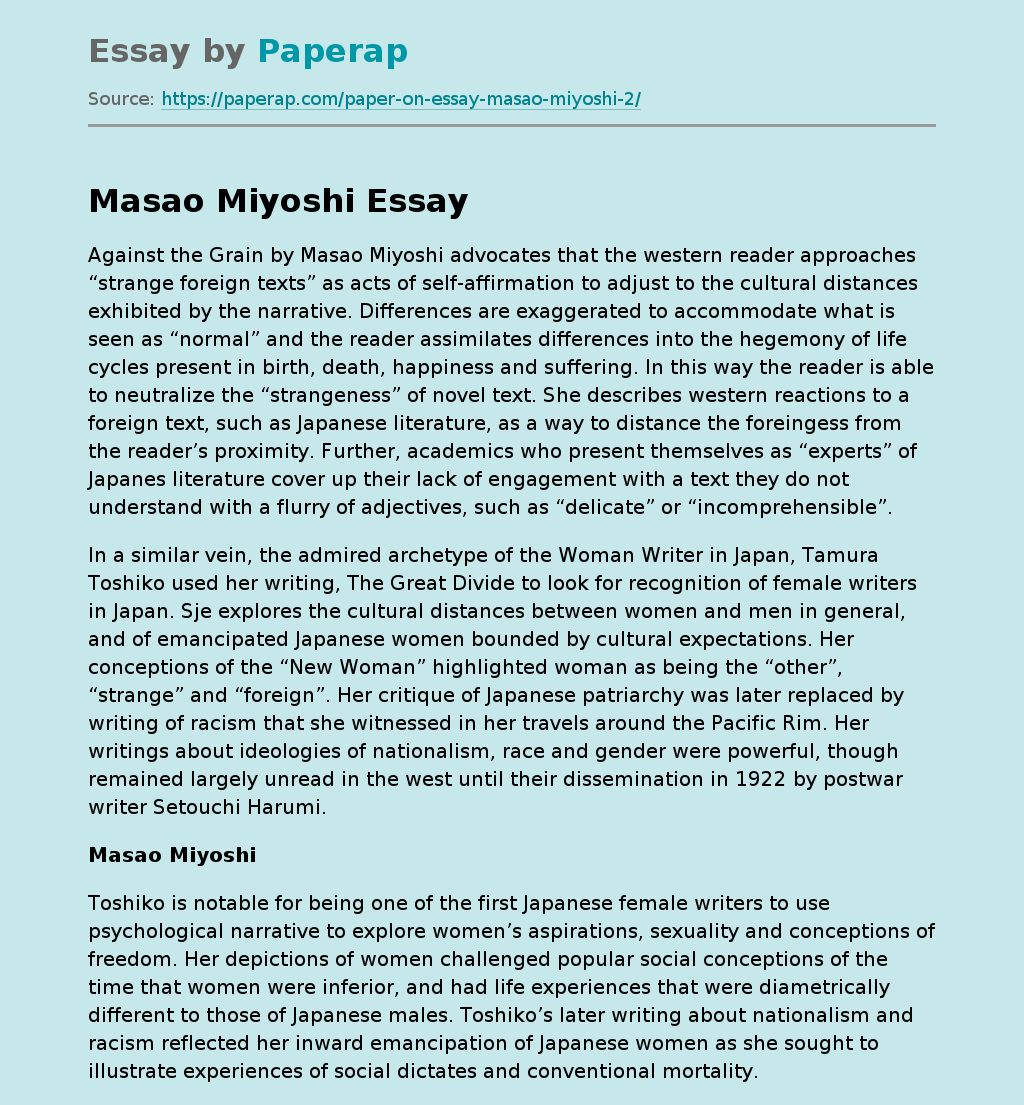"Against the Grain"
The following sample essay on “Against the Grain” analyzes the work of Masao Miyoshi. Miyoshi advocates that the western reader approaches “strange foreign texts” as acts of self-affirmation to adjust to the cultural distances exhibited by the narrative.
Differences are exaggerated to accommodate what is seen as “normal” and the reader assimilates differences into the hegemony of life cycles present in birth, death, happiness and suffering. In this way the reader is able to neutralize the “strangeness” of novel text. She describes western reactions to a foreign text, such as Japanese literature, as a way to distance the foreingess from the reader’s proximity.
Further, academics who present themselves as “experts” of Japanes literature cover up their lack of engagement with a text they do not understand with a flurry of adjectives, such as “delicate” or “incomprehensible”.
In a similar vein, the admired archetype of the Woman Writer in Japan, Tamura Toshiko used her writing, The Great Divide to look for recognition of female writers in Japan.
Sje explores the cultural distances between women and men in general, and of emancipated Japanese women bounded by cultural expectations.
Her conceptions of the “New Woman” highlighted woman as being the “other”, “strange” and “foreign”. Her critique of Japanese patriarchy was later replaced by writing of racism that she witnessed in her travels around the Pacific Rim. Her writings about ideologies of nationalism, race and gender were powerful, though remained largely unread in the west until their dissemination in 1922 by postwar writer Setouchi Harumi.
Toshiko is notable for being one of the first Japanese female writers to use psychological narrative to explore women’s aspirations, sexuality and conceptions of freedom. Her depictions of women challenged popular social conceptions of the time that women were inferior, and had life experiences that were diametrically different to those of Japanese males. Toshiko’s later writing about nationalism and racism reflected her inward emancipation of Japanese women as she sought to illustrate experiences of social dictates and conventional mortality.
"Against the Grain". (2019, Dec 05). Retrieved from https://paperap.com/paper-on-essay-masao-miyoshi-2/

